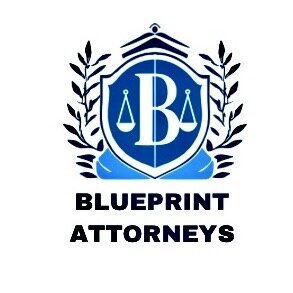Best Debt Capital Markets Lawyers in Aba
Share your needs with us, get contacted by law firms.
Free. Takes 2 min.
List of the best lawyers in Aba, Nigeria
About Debt Capital Markets Law in Aba, Nigeria
Debt Capital Markets (DCM) refer to the platforms, structures, laws, and participants involved in the issuance, trading, and regulation of debt securities, such as bonds and debentures, by companies, financial institutions, or governments. In Aba, Nigeria, DCM activities are influenced by both national laws and local commercial practices. The growth of business in Aba, a prominent commercial hub in southeastern Nigeria, has made the use of debt instruments for raising capital increasingly attractive to corporates, public authorities, and investors. The legal framework in Aba aligns with federal regulation but may also involve local commercial courts and authorities.
Why You May Need a Lawyer
Navigating the Debt Capital Markets in Aba can be complex due to regulatory, contractual, and transactional requirements. Common situations where you may need legal support include:
- Structuring and issuing bonds, commercial papers, or debentures
- Complying with the Securities and Exchange Commission of Nigeria and the Nigerian Stock Exchange regulations
- Negotiating terms between issuers and investors
- Drafting and reviewing offering documents and agreements
- Managing default, insolvency, or disputes related to debt instruments
- Understanding tax implications and regulatory filings
- Providing legal opinions and eligibility status
- Assisting with enforcement of security interests
Legal advice is essential to avoid legal pitfalls, ensure regulatory compliance, and protect your interests whether you are an issuer, arranger, investor, or advisor.
Local Laws Overview
Debt Capital Markets activities in Aba, Nigeria, are primarily governed by federal laws which are administered locally. Key aspects include:
- Investment and Securities Act 2007 - Sets the foundational regulations for issuing and trading securities in Nigeria, including bonds and other debt instruments.
- Securities and Exchange Commission (SEC) Rules - Elaborate on the procedures and requirements for registration, reporting, and compliance of debt securities.
- The Companies and Allied Matters Act (CAMA) - Governs the operations of companies, including authorization for issuing debt and board approvals.
- Nigerian Stock Exchange Listing Rules - Applicable when a debt instrument is to be listed and traded on the exchange.
- Central Bank of Nigeria Regulations - Particularly relevant for banks and other financial institutions issuing or investing in debt instruments.
- Local Commercial Courts - Play a role in dispute resolution, debt recovery, and enforcement of creditor rights within Aba.
Participants must also comply with anti-money laundering laws, tax regulations, and any additional requirements imposed by local market authorities or customs in Aba.
Frequently Asked Questions
What are debt capital markets?
Debt capital markets are platforms where entities raise capital by issuing debt securities such as bonds, notes, or debentures. Investors buy these securities to earn regular returns, while issuers get much-needed funds for their operations or projects.
Who can issue debt instruments in Aba, Nigeria?
Companies, state and local governments, and quasi-government institutions in Aba may issue debt instruments provided they meet legal and regulatory requirements, including approvals from the SEC and CAMA stipulations.
Are there risks to investing in debt securities issued in Aba?
Yes, investors face credit risks, interest rate risks, and market liquidity risks. It is also essential to verify the legal compliance and credibility of the issuer before investing.
How are debt securities regulated in Aba?
Regulation is mainly under the Investment and Securities Act and SEC rules, with additional supervision for listed instruments from the Nigerian Stock Exchange and oversight by local courts and authorities in Aba.
Do I need SEC approval to issue bonds in Aba?
Yes, SEC approval is generally required to issue bonds or related instruments to the public, ensuring compliance with national regulations and investor protections.
Can individuals invest directly in debt capital markets in Aba?
Yes, both individuals and institutions can invest in debt securities, subject to minimum investment thresholds and regulatory requirements. It is advisable to engage a licensed broker or investment advisor.
What happens in case of default on a debt instrument?
If an issuer defaults, investors have legal remedies which may include negotiation, debt restructuring, or litigation in local courts for recovery or enforcement of security interests.
Is legal due diligence necessary for issuing or investing in debt markets?
Legal due diligence is critical. It uncovers risks, ensures proper documentation, and confirms the issuer’s authority and compliance with all laws and regulations.
How are disputes related to debt transactions resolved in Aba?
Disputes can be resolved through negotiation, alternative dispute resolution (ADR), or litigation before local commercial courts, depending on the terms of the agreement and the nature of the dispute.
What taxes are applicable to debt securities in Aba?
Taxes may be levied on interest income, capital gains, and stamp duties depending on the structure of the debt instrument and applicable federal or state tax laws. It is important to seek professional tax advice for specific transactions.
Additional Resources
If you require more information or assistance regarding Debt Capital Markets in Aba, consider reaching out to the following organizations:
- The Securities and Exchange Commission (SEC) Nigeria
- Nigerian Stock Exchange
- Central Bank of Nigeria
- Aba Chamber of Commerce, Industry, Mines and Agriculture (ACCIMA)
- Local branches of the Nigerian Bar Association (NBA) in Aba
- Registered investment advisers and stockbroking firms in Aba
Next Steps
If you need legal help with Debt Capital Markets in Aba, start with the following steps:
- Gather all relevant documents, such as proposals, contracts, financial reports, and any correspondence related to your transaction or investment.
- Prepare a list of questions or concerns to discuss with your lawyer.
- Contact a qualified lawyer or law firm in Aba specializing in DCM and securities law to schedule a consultation.
- Request explanations in plain language if you find any legal terminology or requirements confusing.
- Engage only professionals registered with the relevant regulatory bodies for sound legal and investment advice.
Taking these steps will help you make informed decisions, mitigate legal risks, and protect your interests in the dynamic Debt Capital Markets environment in Aba, Nigeria.
Lawzana helps you find the best lawyers and law firms in Aba through a curated and pre-screened list of qualified legal professionals. Our platform offers rankings and detailed profiles of attorneys and law firms, allowing you to compare based on practice areas, including Debt Capital Markets, experience, and client feedback.
Each profile includes a description of the firm's areas of practice, client reviews, team members and partners, year of establishment, spoken languages, office locations, contact information, social media presence, and any published articles or resources. Most firms on our platform speak English and are experienced in both local and international legal matters.
Get a quote from top-rated law firms in Aba, Nigeria — quickly, securely, and without unnecessary hassle.
Disclaimer:
The information provided on this page is for general informational purposes only and does not constitute legal advice. While we strive to ensure the accuracy and relevance of the content, legal information may change over time, and interpretations of the law can vary. You should always consult with a qualified legal professional for advice specific to your situation.
We disclaim all liability for actions taken or not taken based on the content of this page. If you believe any information is incorrect or outdated, please contact us, and we will review and update it where appropriate.









